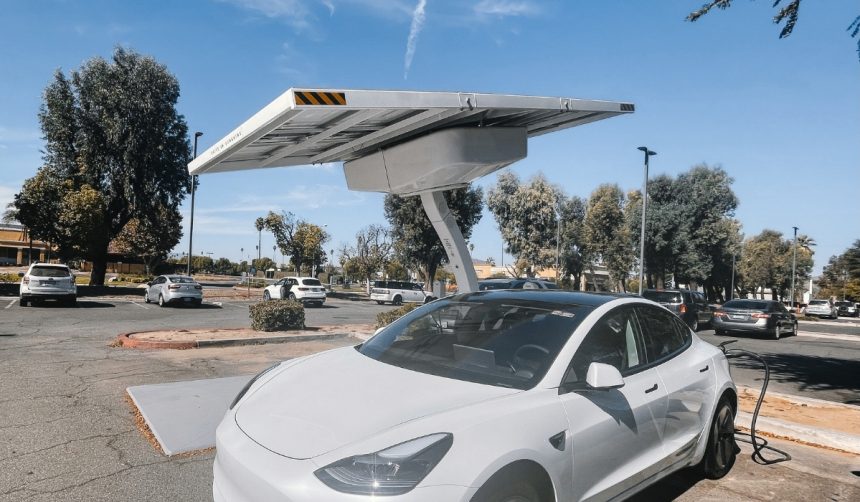The latest decision by the Charlotte City Council to exclude Tesla from its roster of pre-approved electric vehicles highlights ongoing debates around automotive safety and procurement standards. As municipalities across the U.S. ramp up investments in electric vehicle fleets, Charlotte’s move has ignited discussions about the criteria that cities use when selecting vehicles and the influence of political considerations on these decisions. Some council members have raised concerns that the growing scrutiny of brands like Tesla might reflect broader trends rather than isolated incidents. With Charlotte poised to acquire 45 new EVs, the outcome could influence how other jurisdictions approach similar choices.
Similar stories have unfolded elsewhere, such as in Baltimore, where officials initially selected Tesla for a sizable city fleet purchase before reversing course and attributing the change to non-disclosed reasons. While Charlotte’s decision is officially attributed to unresolved safety issues linked to Tesla vehicles, national safety data and recall statistics appear mixed, showing that other automotive brands face more frequent recalls. The debate in Charlotte echoes earlier disputes in other municipalities between political motivations and practical considerations, underscoring how the intersection of safety concerns and local politics shapes municipal purchasing strategies.
Why Did Charlotte Exclude Tesla from the Approved EV List?
Charlotte City Council member LaWana Mayfield advocated for removing Tesla from the city’s pre-approved EV list on the grounds of ongoing safety concerns. Mayfield emphasized that the decision was not directed at Tesla’s CEO, Elon Musk, but was based on the brand’s history of legal challenges and accident reports. She stated,
“It is the fact that this product has been in multiple lawsuits because of safety issues, and there are multiple concerns.”
City officials referenced lawsuit activity and existing accident data in explaining their decision. The debate also surfaced disagreements over whether Tesla’s safety record genuinely differs from industry averages.
Does Data Support Claims of Tesla’s Safety Risks?
Available data from Tesla indicates that its vehicles are involved in fewer accidents than the U.S. average, particularly when Autopilot features are active. Tesla reports that cars on Autopilot are about ten times safer than the average American driver. Yet City Council arguments pointed to the company’s involvement in lawsuits as evidence of potential risks, despite statistics suggesting Tesla is not the most recalled manufacturer. For 2025, the National Highway Traffic Safety Administration counts five recalls for Tesla compared to 81 for Ford, raising questions about how recall history factors into purchasing decisions.
How Did Council Members Respond to the Vote?
The vote to remove Tesla split the council, with six members supporting the exclusion and three opposing it. Opponents, including Republican Edwin Peacock and both Democrats and Republicans such as Ed Driggs, challenged the rationale, questioning the objectivity of the criteria applied. Driggs asserted,
“You don’t have enough data on Tesla compared to the other car companies to suggest they shouldn’t be here. I object to trying to disguise this as anything other than a politically motivated desire to not have this name on this list.”
The debate underscored persistent tensions between fiscal, operational, and political considerations in public vehicle procurement. Several council members who voted no argued that such exclusions could overlook vehicles that offer cost savings and performance advantages.
Charlotte’s decision takes place amid wider conversations about municipal EV fleets. While law enforcement agencies in the U.S. have adopted Tesla vehicles and reported lower maintenance and operating costs, other municipalities have either paused or reversed their plans to utilize the brand. Baltimore’s experience, where Tesla was first chosen for a fleet upgrade before the decision was reversed, suggests that procurement processes for EVs can be subject to shifting political and administrative preferences. Evaluating both the cost-efficiency and public sentiment around brands like Tesla will remain relevant as more cities establish policies for their EV transitions.
As cities consider expanding electric fleets, the criteria for selecting brands remain a critical topic of discussion. Evidence shows that Tesla vehicles can deliver financial benefits in operational savings, but contentious public debates around their safety and reputation continue to influence purchasing outcomes. For municipal officials and citizens alike, understanding how safety data, legal history, and political perspectives intersect is crucial for transparent vehicle procurement. Continuing to monitor recall statistics and real-world fleet performance will help inform future decisions and encourage best practices for public investments in electric vehicles.










